
A sea change in triathlon's history was triggered because it was decided that drafting - the act of riding in a competitor's slipstream - couldn't be properly policed. It was almost 30 years ago, and the switch to draft-legal racing, abolishing the need for triathletes to mind the energy-saving gap, was a critical if controversial step to earning the sport its Olympic bow in Sydney 2000.
The rifts of that period - and there were plenty have mainly healed, and triathlon has evolved so now short-course draft-legal competition and the longer non-drafting scene reside more or less happily alongside one another.
But the issue of how to solve drafting, or - more bluntly and in the eyes of many - cheating, drags on. For amateurs looking to complete a first Ironman it's rarely a topic of concern, yet for those who love competition, especially the strong cyclists who feel most compromised, it remains the bane of racing lives. While different strategies have been adopted to try and enforce fairer racing, such as lengthening draft zones, putting more technical officials (or draft-busters) on course, and even introducing shame-inducing penalty laps on the run, nothing, as yet, has cracked the code.
SOLVING THE PROBLEM
It's long been thought that technology would provide the answer. But would any system be accurate enough, and would anyone be crazy enough to invest the years and cash in devising a niche product that had no guarantee of being embraced by race organisers?
Step forward two former pro triathletes from New Zealand, James Elvery and Dylan McNeice, and rewind nine years to the origins of Race Ranger.
This story is from the {{IssueName}} edition of {{MagazineName}}.
Start your 7-day Magzter GOLD free trial to access thousands of curated premium stories, and 9,000+ magazines and newspapers.
Already a subscriber ? Sign In
This story is from the {{IssueName}} edition of {{MagazineName}}.
Start your 7-day Magzter GOLD free trial to access thousands of curated premium stories, and 9,000+ magazines and newspapers.
Already a subscriber? Sign In
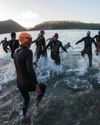
How to Carb Load - Packing your working cells with carbohydrates in the build-up to your big race is a proven strategy to race stronger and faster...
Whichever distance triathlon you're racing, the intensity and duration of your activity will see your body tap into its stores of carbohydrates (in the form of glycogen) to power your effort. While it's possible to top up your tank on the go, it's better to start your event with your stores full to the brim.
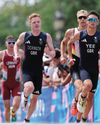
The Olympic Champion - On 31 July, Great Britain's Alex Yee put together arguably the greatest one-day performance we have ever seen at an Olympic Games to win gold. And we were there at the finish line to speak to tri's new poster boy...
The opening line of the race report read how 20 years on from New Zealand’s first and only Olympic triathlon gold medal, Hayden Wilde had put in a careerbest performance to regain the title for his nation. Then Alex Yee comes around the corner.Yee’s charge, seemingly from nowhere on the final lap of the 10km run in Paris, didn’t just help him become the most decorated Olympic male triathlete of all time, and didn’t just cap a rivalry that has been building for six years, it left seasoned watchers of swim, bike, run in awe. It will go down as one of the greatest triathlon races; Yee, still just 26, as one of the greatest triathletes. His medals from Paris added to the two from Tokyo, leaving his haul at two gold, a silver and a bronze, and counting.

"I HAVE THE OPPORTUNITY TO INFLUENCE THE GROWTH OF TRIATHLON"
British Triathlon CEO Ruth Daniels talks Paris, her plans to grow tri and her own personal goals... knees allowing
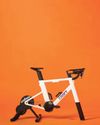
ZWIFT RIDE
£1,199.99 Zwift's new Ride is an indoor bike that might help you break your PB... but won't break the bank

PARIS SHOWED THE VALUE OF OLYMPIC EXPERIENCE
With the spotlight on triathlon like never before at these Games, debutant athletes talked about being overwhelmed by the unique environment

GAMES AT THE GAMES
After watching and enjoying the Olympic triathlon events, Brunt amused himself by playing the 'guess how far into each event I would die' game...

WHERE EAGLES DARE
With little heat prep, the wrong gear choice and a course-recce mistake, would experienced extreme triathlete Sean McFarlane soar like an eagle or drop like a stone in Italy?
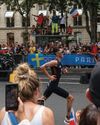
HOW TO INCREASE RUN PACE WHEN FATIGUED
The ability to dig deep in the latter stages of a race helped Alex Yee achieve Olympic gold. Here Ben, a member of Team GB's coaching staff in Paris, explains how you too can find that extra gear...
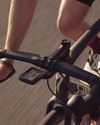
BUYER'S GUIDE: BIKE COMPUTERS
Log your rides, find your way and monitor your multisport training with a quartet of impressive bike computers...
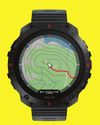
POLAR GRIT X2 PRO
\"You can't be anything other than impressed with the GPS, whose design is one of the significant changes to the V3\"